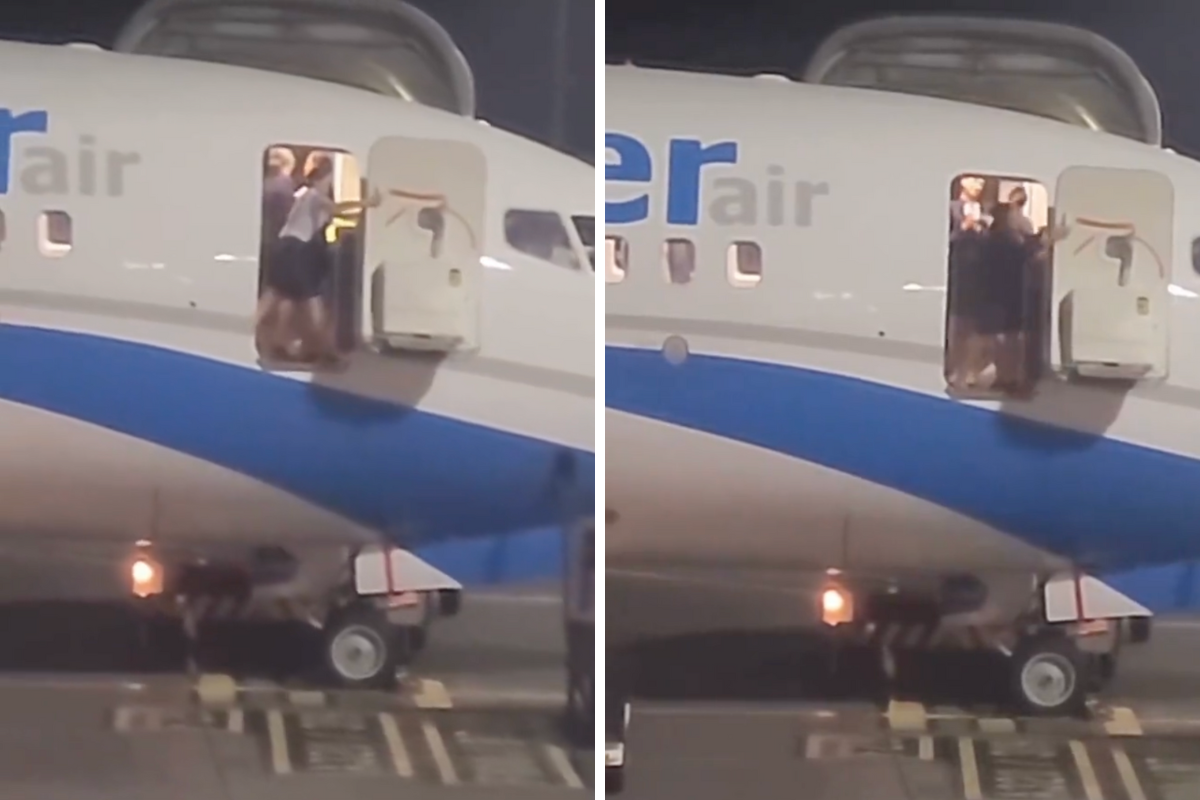
Statistically speaking, aviation is without doubt the safest form of long-distance transport. According to the International Air Transport Association (IATA), in 2018, 4.3 billion passengers flew safely on over 46 million flights, with an astonishingly low accident rate of just one fatal accident for every 4.2 million flights.
One of the reasons that flying has become the safest form of long-distance transport the world has ever known is that the industry dedicates so many resources on a global scale to identify and address potential risks way before they become actual hazards.
The result of all of this analysis is broadly similar rules around the world that keep passengers and airline employees as safe as possible at every stage of the journey. Sometimes, however, there are some really jarring differences in safety rules that just make your jaw drop.
One of those moments was caught on video recently when two flight attendants struggled to close the door of a Boeing 737.
That in itself isn’t unusual. The Boeing 737s hinged doors are well known for being tricky to pull closed from the inside without someone assisting from outside.
But what made this video unusual was that there was no ground staff on the outside helping to close the door. The reason there was no ground staff was because there was was jetty or steps attached to the aircraft. The flight attendants stood at the edge of the door with nothing to protect them from falling to the tarmac below as they struggled to pull the door closed.
A few decades ago, this wouldn’t be a particularly unusual sight. But in 2023, the aviation industry has learned that opening a cabin door without a jetty or other platform attached to the door is an unnecessary risk that could result in serious injury or death.
And this isn’t a theoretical risk. In 2018, an Air India flight attendant fell up to 20 feet from an open cabin door of a Boeing 777-300 just before it pushed back from the stand in Mumbai.
The 53-year-old crew member sustained a right leg compound fracture, fractures in both heels and soft tissue injury in her chest, abdomen and lower spine.
These types of accidents can, however, happen anywhere. In 2020, a Finnair flight attendant was seriously injured and suffered multiple fractures after falling from the open door of an Airbus A320.
It’s no surprise, then, that there are plenty of airlines out there that prohibit flight attendants or ground staff from opening or closing cabin doors without steps or a jetty attached to the aircraft.
It seems, though, that some airlines aren’t quite so risk-averse. In fact, in the summer months, you’ll see plenty of aircraft parked up with cabin doors open without steps attached to get air circulating through the plane.
Personally, it’s not a risk that I’d be happy to take.
Mateusz Maszczynski honed his skills as an international flight attendant at the most prominent airline in the Middle East and has been flying ever since... most recently for a well known European airline. Matt is passionate about the aviation industry and has become an expert in passenger experience and human-centric stories. Always keeping an ear close to the ground, Matt's industry insights, analysis and news coverage is frequently relied upon by some of the biggest names in journalism.







